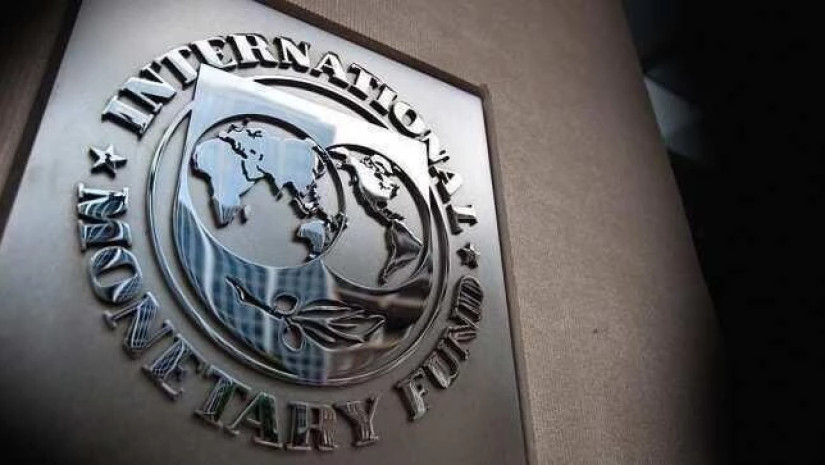The near-term outlook has improved moderately and the output gap is expected to close gradually in 2019–20. Over the medium to long term growth is expected to accelerate moderately and external vulnerabilities to decrease, thanks to the dividends from structural reforms. Risks to the outlook are balanced. Upside risks arise from stronger domestic and external demand, which, in the presence of structural bottlenecks, could result in demand pressures and require policy tightening. A larger-than-anticipated impact from structural reforms could also increase growth in the outer years. However, Georgia remains vulnerable to regional
developments and market volatility in main trading partners. Weaker growth in key advanced economies and a retreat from cross-border integration could undermine efforts to diversify exports.
The favorable macroeconomic environment offers Georgia an opportunity to advance reforms to increase resilience to external shocks and to promote higher and more inclusive growth, while preserving macroeconomic stability. The authorities are committed to fiscal sustainability, which—in the context of limited room to raise extra revenue—will be achieved by containing current spending while creating room for higher public investments. In the medium run, the need to ramp up spending to implement the education reform will be compensated by lower capital spending. To limit fiscal risks, the authorities have taken decisive steps to extend the coverage and the reporting of fiscal risk and to address issues with the VAT refund system. The authorities will continue to improve the monetary and financial frameworks by strengthening the crisis management system, supporting the development of capital markets, and actively providing incentives to de- dollarize. The authorities are committed to ambitious structural reforms to promote private sector-led activity through improvement of business environment, economic diversification, and job creation.
Executive Board Assessment
Executive Directors agreed with the thrust of the staff appraisal. They commended Georgia’s strong economic performance under the EFF program supported by favorable external conditions and prudent economic policies, which has enhanced confidence and improved growth. Directors noted that while the macroeconomic outlook is generally positive and risks are balanced, Georgia remains vulnerable to external shocks, including market volatility in major trading partners. They noted that continued commitment to sound policies and further progress in structural reforms will be necessary to preserve the gains made, address remaining vulnerabilities, and foster stronger and more inclusive growth.
Directors welcomed the authorities’ commitment to prudent fiscal policies to preserve fiscal sustainability and strengthen fiscal credibility. They supported continued efforts to rein in current spending and improve revenue administration to create space for higher public investment, refund VAT credits, and narrow the fiscal deficit. Directors welcomed the progress made in the coverage and reporting of fiscal risks, which remain high, and arise mainly from state-owned enterprises and power purchase agreements. They encouraged further efforts to improve transparency and strengthen mechanisms to better monitor and control these risks. Directors also supported measures to revamp the fiscal rule framework to improve fiscal governance and accountability.
Directors considered that monetary policy is appropriately focused on price stability, supported by exchange rate flexibility and interventions that help smooth excessive volatility and build reserves. They supported strengthening the inflation targeting framework through efforts to improve liquidity management and communication. Directors commended the central bank for strengthening the financial supervision and regulatory framework, including by implementing FSAP recommendations. Given concerns about indebtedness, they supported efforts to contain credit to households by tightening prudential financial policies. Directors welcomed the gradual de-dollarization of the economy as a sign of increased credibility in monetary policy and progress in anchoring inflation expectations. They noted the need to bring the crisis management framework in line with best international practices, and stressed the importance of improving crisis management procedures, including implementing the emergency liquidity assistance and banking resolution frameworks.
Directors encouraged the authorities to take advantage of the current economic rebound to undertake reforms that will increase Georgia’s economic resilience to external shocks and promote higher, more inclusive, and private sector-led growth. In this context, they emphasized the need to prioritize growth-enhancing measures, particularly to improve infrastructure, education, labor market policies, and competitiveness. Directors welcomed Georgia’s efforts to improve the business environment and diversify export markets, including through free trade agreements. They noted that mobilizing foreign direct investment in export-oriented sectors is instrumental for enhancing competitiveness and supporting growth.
It is expected that the next Article IV consultation with Georgia will be held in accordance with the Executive Board decision on consultation cycles for members with Fund arrangements.











